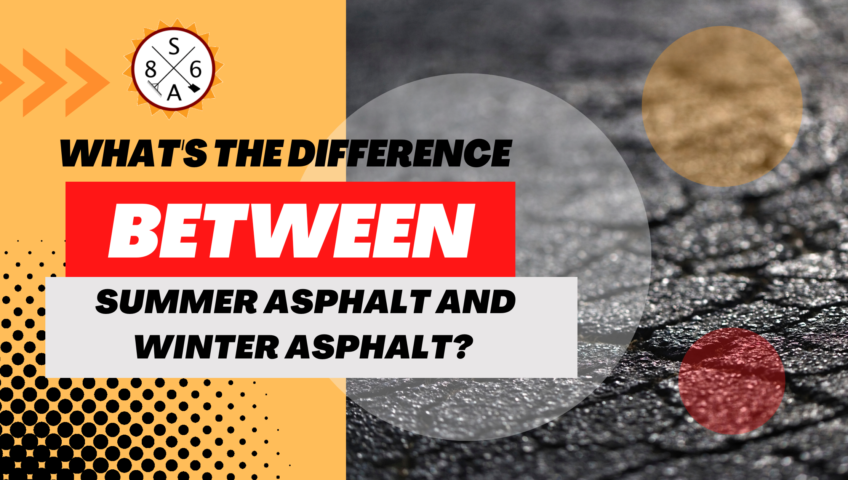
What’s the Difference Between Summer Asphalt and Winter Asphalt?
There are many reasons why so many homeowners choose asphalt to pave their driveways, patios, and other outdoor hard surfaces. Not only is it cost-effective, but asphalt is durable, flexible, easy to repair, and is low maintenance. An asphalt driveway can easily last 30 years before needing replacement.
But, how long an asphalt surface lasts depends on the asphalt company you choose and the asphalt mix (or aggregate) the contractor uses – summer asphalt or winter asphalt.
When is the best time to install asphalt?
The optimum temperature for an asphalt installation is when the temperature is between 60 and 70 degrees Fahrenheit. This is the temperature at which asphalt cures the fastest. But, a good asphalt company can install an asphalt driveway at any time of the year, if they use the right asphalt mix.
Still, timing is important. During the winter, the asphalt company will want to avoid freeze/thaw cycles (for obvious reasons). And, during the summer, asphalt is rarely laid fresh during the portion of the day when the sun’s UV rays are the strongest.
But when it comes to temperature, asphalt manufacturers have developed different formulations to suit each season. There is a summer asphalt (hot mix aggregate) that works better during the higher temperatures of this season. And, winter asphalt (or cold mix aggregate), is designed to be installed during the low temperature months of December through March.
Best Uses for summer asphalt
From spring to the end of fall, summer asphalt is heated to temperatures between 275-325 degrees Fahrenheit, and it is important that the hot asphalt stays within that temperature range as it is being quickly applied. If it cools too much, it should be reheated. Also, the ground surface needs to be warm and dry for an ideal summer asphalt application.
This aggregate is not only best to be applied during warm months, summer asphalt is also better suited for long driveways, commercial parking lots, and public roads.
Winter asphalt applications
Winter asphalt is best for wet and/or cold weather applications. This formulation does not need to be heated constantly in order for the asphalt to adhere well to the subsurface. But, because winter asphalt is poured when the surface is cold, it will take longer to cure.
Still, you can mix and use a batch of winter asphalt and save the remainder for driveway or repairing cracks in your driveway or street patch jobs at any time. While winter asphalt is not ideal for large asphalt installations, it is an easy and economical way to keep your driveway looking pristine when repairs are needed.
For smaller jobs and when you simply want to even out your existing driveway surface for a safer, smoother driveway, then winter asphalt is the go-to choice.
When you partner with a professional asphalt company, they will know exactly the right type of aggregate mix to use, what time of day is best, and in what weather conditions will provide for the best driveway installation. Most driveways in America are paved with asphalt because it creates a skid-resistant surface, which makes your driveway safer to walk and run on. Also, an asphalt surface is smoother and more uniform than other materials.
